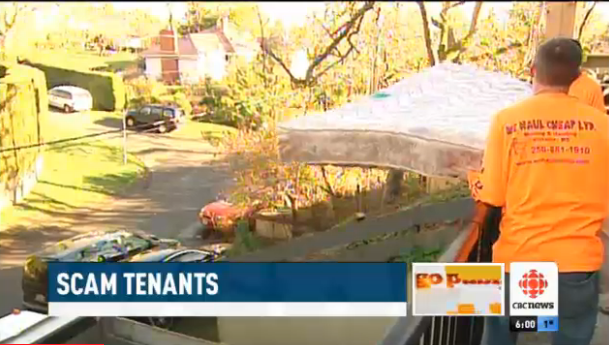Today in Ottawa, with temperatures plummeting to -38°C, it’s absolutely ridiculous. As a matter of fact, large portions of the United States and Canada are experiencing a brutal cold weather snap. Places like Minnesota, Illinois, New York City, Toronto, and Montreal are all reporting -20°C weather. With these extreme conditions, it’s prime time for water pipes to freeze and burst, leading to a potential nightmare for small landlords and a more-than-minor inconvenience for tenants. The need for effective water line leak detection has never been more apparent in such freezing temperatures. It is also advised to seek chicagoland water heater repair services before winter comes. This will help ensure you won’t have any issues with your water heater throughout the winter.
Landlords must check if their property needs a heat pump repair. It’s a sneaking problem for many of us to deal with (especially those of us who aren’t renting all inclusive units and whose tenants are covering their own utilities) and it’s made even more painful when self-managing landlords have to deal with it during weather that makes Antarctica look like a beach vacation. You may also stock up on supplies like valves, 316 Stainless Lag Bolts and screws, and wrenches that you can use when repairs are needed for your plumbing system.
First… why do pipes freeze?
- Poorly protected pipes which haven’t been sufficiently insulated
- Exposure to icy draughts, usually as a result of cracks or gaps at the point where the pipe enters your home
- Pipes located inside cupboards — warm air from inside your home may not reach these pipes if your cupboard doors are closed most of the time
- Generally insufficient heat in units.
Secondly, what makes pipes burst?
- Water freezes and expands inside household pipes
- Continual freezing and expansion of water inside the pipe causes pressure to build up between the ice blockage and the closed faucet
- As a result of repeated pressure on this section of pipe, the pipe eventually bursts
If you suspect that you have a damaged or burst pipe, Tommie’s licensed plumbers are just a call away.
How can I prevent frozen and bursting water pipes?
- Let a thin stream of cold water run from a faucet. The stream should be a continuous flow, about the thickness of a pencil. This water can be caught in a bucket or pail to be recycled for another purpose later, if desired. However, if you notice the water softner not working, it’s crucial to address the issue promptly to avoid unnecessary water wastage. Visit sites like https://diamondh2o.com/residential-water-treatment/drop-systems/ to know more about drop water systems.
- Be sure pipes in unheated areas of a unit or crawlspace are insulated. Many hardware and home improvement stores carry foam insulation for this purpose.
- Leave interior cupboard doors under sinks open, especially if the water pipes are adjacent to an exterior wall. This will allow heat from the room access to the pipes.
- Plug drafty cracks and repair broken windows that could allow cold air to get inside where pipes are located.
- Shut off and drain pipes leading to outside faucets.
- Educate your tenants on the necessity to be mindful of cold weather snaps. Knowing what causes a toilet to leak from the bottom can also prevent costly home repairs.
Temporary fixes might seem to solve the problem, but they often lead to more significant issues down the line. An experienced plumber in Southampton, PA will fix the current leak and assess your plumbing system for any underlying problems that could cause future leaks.
Have you ever dealt with freezing or bursting pipes? Share your stories with us.

